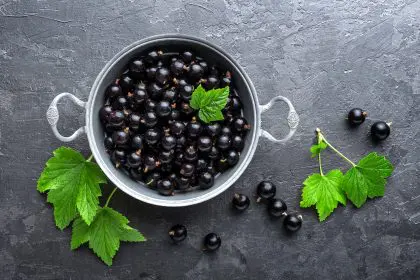The morning meal sets the tone for your entire day, yet millions of people either skip breakfast entirely or choose foods that sabotage their weight loss efforts before they even begin. This critical mistake can derail even the most determined dieters, leading to afternoon energy crashes, uncontrollable cravings, and evening overeating that undoes any progress made.
Understanding the science behind breakfast and weight loss reveals why this meal deserves special attention in any successful weight management strategy. The body’s metabolism, hormone production, and appetite regulation all respond dramatically to how you fuel yourself in the morning, creating a cascade of effects that influence every eating decision throughout the day.
The relationship between breakfast and weight loss is far more complex than simple calorie counting. The timing, composition, and quality of morning nutrition interact with your body’s natural rhythms to either support or undermine your weight loss goals in ways that can make or break your long-term success.
1. Never skip breakfast to accelerate weight loss
The temptation to skip breakfast as a quick way to reduce daily calories represents one of the most counterproductive weight loss strategies. When you skip breakfast, your body enters a mild starvation mode that triggers hormonal changes designed to preserve energy and increase appetite later in the day.
Research consistently shows that breakfast skippers tend to consume more calories throughout the day than those who eat morning meals. The body’s natural response to extended fasting includes increased production of ghrelin, the hunger hormone, which creates intense cravings and makes portion control significantly more difficult.
Skipping breakfast also disrupts your body’s natural circadian rhythms, which regulate metabolism, hormone production, and appetite control. This disruption can lead to insulin resistance, decreased fat burning, and increased fat storage, particularly around the midsection.
The psychological effects of breakfast skipping are equally problematic. Starting the day without fuel often leads to decision fatigue, making it harder to make healthy food choices throughout the day. This mental exhaustion can trigger emotional eating and impulsive food decisions that derail weight loss efforts.
2. Balance all three macronutrients for optimal results
The most effective weight loss breakfasts include protein, healthy fats, and complex carbohydrates in carefully balanced proportions. This combination creates synergistic effects that support sustained energy, appetite control, and metabolic health throughout the morning and beyond.
Protein serves as the foundation of any weight loss breakfast, providing amino acids that support muscle maintenance during weight loss while triggering satiety hormones that reduce appetite. Adequate morning protein intake helps prevent muscle loss that can slow metabolism and make weight maintenance more difficult.
Healthy fats play a crucial role in hormone production and nutrient absorption while providing sustained energy that prevents mid-morning energy crashes. These fats also slow digestion, helping to moderate blood sugar responses and extend the feeling of fullness from your breakfast.
Complex carbohydrates provide immediate energy for brain function and physical activity while supplying fiber that supports digestive health and appetite regulation. The right carbohydrates also help maintain steady blood sugar levels that prevent cravings and energy fluctuations.
3. Prioritize protein to control appetite all day
Protein stands as the most important macronutrient for weight loss success, particularly when consumed in the morning. High-protein breakfasts trigger the release of peptide YY and GLP-1, hormones that signal fullness to the brain and reduce appetite for hours after eating.
The thermic effect of protein means that your body burns more calories digesting and metabolizing protein compared to fats or carbohydrates. This increased calorie burn contributes to weight loss while supporting the preservation of lean muscle mass during calorie restriction.
Morning protein intake also helps stabilize blood sugar levels throughout the day, preventing the spikes and crashes that trigger cravings for high-calorie, processed foods. This stabilization effect is particularly important for people with insulin resistance or prediabetes.
Eggs, Greek yogurt, and plant-based proteins like tofu provide complete amino acid profiles that support muscle maintenance and metabolic health. These protein sources also offer additional nutrients that support overall health and weight loss efforts.
4. Include healthy fats for sustained energy
Healthy fats in breakfast provide slow-burning energy that prevents the rapid hunger return often experienced with high-carbohydrate morning meals. These fats also support the absorption of fat-soluble vitamins and contribute to hormone production that regulates appetite and metabolism.
Avocados, nuts, seeds, and olive oil provide monounsaturated and polyunsaturated fats that support cardiovascular health while contributing to weight loss. These healthy fats also help maintain stable blood sugar levels and reduce inflammation throughout the body.
The inclusion of healthy fats in breakfast helps trigger the release of cholecystokinin, a hormone that promotes feelings of fullness and slows gastric emptying. This effect extends the satisfaction from your breakfast and reduces the likelihood of mid-morning snacking.
Omega-3 fatty acids from sources like chia seeds, flaxseeds, and walnuts provide additional anti-inflammatory benefits that support metabolic health and may help reduce belly fat accumulation over time.
5. Choose fiber-rich carbohydrates for digestive health
The right carbohydrates in breakfast provide essential nutrients and fiber while supporting sustained energy levels and digestive health. Fiber-rich carbohydrates slow digestion, moderate blood sugar responses, and promote feelings of fullness that last throughout the morning.
Whole grains, fruits, and vegetables provide complex carbohydrates that fuel brain function and physical activity while supplying essential vitamins, minerals, and antioxidants. These nutrient-dense carbohydrates support overall health while contributing to weight loss efforts.
The fiber content in quality carbohydrates also feeds beneficial gut bacteria, supporting digestive health and potentially influencing weight management through the gut-brain axis. A healthy gut microbiome is increasingly recognized as important for maintaining healthy weight.
Avoiding refined carbohydrates and added sugars in breakfast prevents blood sugar spikes that trigger insulin responses and subsequent cravings. This stable blood sugar approach supports consistent energy levels and better appetite control throughout the day.
6. Try overnight oats for convenient nutrition
Overnight oats provide a perfect example of balanced breakfast nutrition that can be prepared in advance for busy mornings. This combination of oats, protein, healthy fats, and fiber creates a satisfying meal that supports weight loss goals while fitting into hectic schedules.
The slow-release carbohydrates in oats provide sustained energy while the added protein from Greek yogurt or protein powder helps maintain muscle mass and promote satiety. Chia seeds or ground flaxseed add healthy fats and additional fiber for digestive health.
Fresh or frozen berries provide antioxidants and natural sweetness without the blood sugar spikes associated with added sugars. Nuts or nut butter contribute healthy fats and additional protein while adding satisfying texture and flavor.
The convenience of overnight oats makes them an excellent option for people who struggle with morning meal preparation. Having a healthy breakfast ready to grab and go eliminates the excuse of not having time for proper morning nutrition.
7. Explore plant-based protein alternatives
Plant-based proteins offer excellent options for breakfast that support weight loss while providing diverse flavors and textures. Tofu scrambles, protein smoothies with plant-based powders, and bean-based breakfast dishes provide complete nutrition while supporting various dietary preferences.
Tofu provides a complete protein profile while being naturally low in calories and high in nutrients. When prepared with vegetables and healthy fats, tofu scrambles offer a satisfying breakfast that supports weight loss goals while providing sustained energy.
Plant-based protein powders made from pea, hemp, or brown rice can be easily incorporated into smoothies with fruits, vegetables, and healthy fats. These smoothies provide convenient nutrition while offering endless flavor combinations to prevent breakfast boredom.
Legumes like black beans or chickpeas can be incorporated into breakfast dishes for additional protein and fiber. These plant-based proteins also provide complex carbohydrates and essential nutrients that support overall health and weight management.
8. Maximize Greek yogurt’s weight loss potential
Greek yogurt stands out as an exceptional breakfast food for weight loss due to its high protein content, probiotic benefits, and versatility. The protein in Greek yogurt provides sustained satiety while the probiotics support digestive health and may influence weight management.
Plain Greek yogurt contains significantly more protein than regular yogurt while being lower in sugar and carbohydrates. This profile makes it an ideal base for weight loss breakfasts when combined with healthy fats and fiber-rich additions.
Adding nuts, seeds, and berries to Greek yogurt creates a balanced breakfast that provides all three macronutrients in ideal proportions. This combination supports sustained energy, appetite control, and metabolic health throughout the morning.
The probiotics in Greek yogurt may support weight loss by improving gut health and potentially influencing the gut-brain axis that regulates appetite and metabolism. These beneficial bacteria also support immune function and overall health.
9. Master the art of loaded avocado toast
Avocado toast can be transformed from a simple snack into a complete weight loss breakfast by adding protein and optimizing the carbohydrate base. Using whole grain bread provides fiber and complex carbohydrates while the avocado contributes healthy fats and additional fiber.
Adding a poached or hard-boiled egg on top provides high-quality protein that completes the macronutrient profile needed for weight loss success. The combination of protein, healthy fats, and fiber creates sustained satiety and stable blood sugar levels.
Vegetables like spinach, tomatoes, and peppers add volume, nutrients, and flavor without significantly increasing calories. These additions also provide antioxidants and phytonutrients that support overall health and may assist with weight management.
The key to successful avocado toast is portion control and quality ingredients. Using appropriate portions of each component ensures that the breakfast supports weight loss goals while providing satisfying nutrition.
10. Avoid common breakfast weight loss saboteurs
Many traditional breakfast foods actively work against weight loss efforts by triggering blood sugar spikes, providing empty calories, or failing to provide sustained satiety. Recognizing and avoiding these foods is crucial for breakfast success.
Sugary cereals, pastries, and processed breakfast foods provide rapid energy that quickly fades, leaving you hungry and craving more food within hours. These foods also contribute to insulin resistance and fat storage, particularly around the midsection.
Processed meats like bacon and sausage are high in sodium and preservatives while providing poor-quality protein. These foods also contain saturated fats that may contribute to inflammation and metabolic dysfunction when consumed regularly.
Fruit juices and sweetened beverages provide concentrated sugars without fiber, leading to rapid blood sugar spikes and subsequent crashes. These liquid calories also fail to provide satiety, making it easy to consume excess calories without realizing it.
Creating sustainable breakfast habits
The most successful breakfast strategies for weight loss are those that can be maintained long-term without feeling restrictive or burdensome. Focus on developing habits that fit your lifestyle while providing the nutrition your body needs for optimal function.
Meal preparation and planning can make healthy breakfasts more convenient and sustainable. Preparing components in advance or having go-to breakfast combinations ready can prevent reliance on less healthy options during busy mornings.
Listen to your body’s hunger and fullness cues to determine appropriate portion sizes and timing. Some people thrive with larger breakfasts, while others prefer smaller morning meals with healthy snacks later in the morning.
The long-term perspective
Successful weight loss through breakfast optimization requires patience and consistency rather than perfection. Focus on making gradual improvements to your morning nutrition rather than attempting dramatic changes that may be difficult to maintain.
Remember that breakfast is just one component of a comprehensive weight loss strategy that includes overall nutrition, physical activity, sleep, and stress management. The morning meal sets the tone for the day but works best when supported by healthy choices throughout all meals.
The habits you develop around breakfast will influence your relationship with food throughout the day. By prioritizing balanced, nutritious morning meals, you create a foundation for sustained weight loss success and improved overall health.
Building a positive morning routine that includes adequate nutrition, hydration, and mindful eating practices can transform not just your weight loss efforts but your overall quality of life. The investment in morning nutrition pays dividends throughout the day in the form of stable energy, better mood, and improved decision-making around food choices.
















